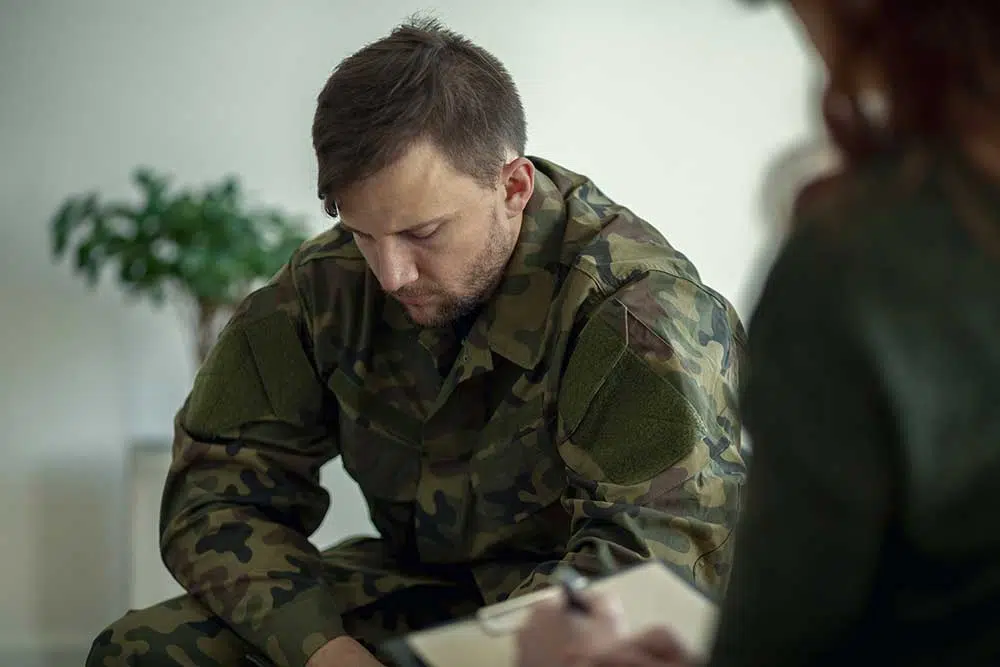Beach House Recovery Center » Mental Health Disorders » PTSD » Combat PTSD Treatment

The trauma of combat doesn’t end when you return home. Combat post traumatic stress disorder (PTSD) leaves behind invisible scars on the mind and body that require both understanding and specialized care.
The expert team at Beach House is here to guide you with compassion on your path toward healing. Keep reading to learn about combat PTSD, its causes, and the treatments we offer to help you take back control of your life.
Combat PTSD is a type of post traumatic stress disorder that can develop after experiencing a traumatic event during military service. It is a mental and physical reaction that can change how a person thinks, feels, reacts, and other symptoms.
Combat PTSD can be caused by exposure to extreme events in a combat situation. This may include:
Things like multiple or longer deployments and lower rank can also increase your risk of developing combat PTSD.
For someone with combat PTSD, certain sights and sounds could be reminiscent of combat and trigger flashbacks. They may include
Sights
Sounds
This may include any date or location in which a person experienced a traumatic event that led to combat PTSD. For veterans, this may include holidays, anniversaries, public events, private events, and certain seasons.
Combat veterans with PTSD may have trouble maintaining close relationships with their family and friends. The symptoms of PTSD can cause issues with trust, closeness, communication, and problem-solving, affecting the way they interact with others. In turn, loved ones can end up feeling hurt, sad, or left out, eventually becoming angry and distant.
This often leads to a circular pattern of stress that harms relationships.
A mental health professional at Beach House can diagnose combat PTSD if a person meets all criteria noted in the Diagnostic and Statistical Manual of Mental Disorders (DSM-5-TR) book by the American Psychiatric Association. Key elements of a combat-related PTSD diagnosis include:
To diagnose this PTSD subtype, our licensed therapists may ask you to complete a self-assessment in the form of a questionnaire. Once they have a general understanding of your symptoms, they will perform a screening assessment and structured clinical interview to understand the cause of combat PTSD and determine the best treatment.
Your healthcare provider or mental health professional may prescribe one or more of the following medications along with combat PTSD treatment, depending on your unique symptoms:
The following techniques can help manage combat-related PTSD symptoms by focusing on the present moment and calming the nervous system:
In addition to evidence-based therapy programs, family support, and supportive medications, there are several group therapy and peer support options for veterans. These include:
Your healthcare provider or mental health professional may recommend one or more of the following to support long-term healing:
If you or a loved one is struggling with combat PTSD symptoms, we can help. Our center for recovery is one of Florida’s most respected mental health treatment centers. We specialize in treating a range of adult mental and behavioral health disorders.
We offer expert, intensive intervention for those seeking freedom from PTSD and its many subtypes. Contact our admissions counselors to learn more about our combat PTSD treatments and how to get started on your path to healing today.
We accept most major insurance plans and can verify your benefits quickly and confidentially.
We’re committed to helping you access the care you need, our admissions counselors can guide you through your coverage options and available resources.





"*" indicates required fields